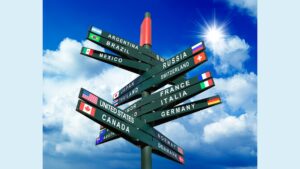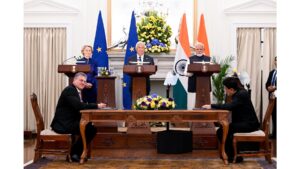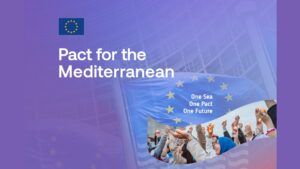The classical concept of sovereignty in international law and political theory traditionally refers to the supreme and unrestricted authority of the state, ensuring that a state is legally independent of any external influence.
This perspective still dominates political and legal discourse today: debates about sovereignty are mostly framed in legal terms. However, global economic interdependence, financial markets, international supply chains, and technological dependencies present new challenges for states. In the twenty-first century, economic sovereignty — the ability of a state to effectively control strategic resources, maintain financial stability, and steer long-term economic development — has increasingly become the true benchmark of self-determination.
For most states, legal sovereignty is no longer in question. The UN Charter and the fundamental principles of international law — especially the equality of states and the prohibition of interference in domestic affairs-guarantee formal independence. By contrast, economic sovereignty is far less obvious and far less absolute. Even the United States and China are not self-sufficient in every field and remain dependent on forces beyond their borders, which they naturally seek to reduce. Economic sovereignty, unlike classical legal sovereignty, is relative rather than absolute, and its key feature is the extent and quality of mutual dependencies.
International trade and global supply chains create complex webs of interdependence. Moreover, international organizations, global corporations, and NGOs now exercise economic power that competes with that of states. This means that the subjects of economic sovereignty are not only states, but also large corporations, NGOs, and international bodies that often command greater economic resources and influence than many nations. In the digital sector, Big Tech companies such as Google, Apple, Amazon, and Meta possess capital, data, and innovation capacities on a scale that allows them to act as quasi-sovereign economic players. Similarly, the World Trade Organization (WTO) and the International Monetary Fund (IMF) exert significant influence on the economic policies of their member states through trade dispute settlement and lending conditions.
Membership in international organizations such as the European Union or the WTO involves a voluntary sharing of sovereignty, which inevitably limits a state’s room for economic maneuver. For members of the euro area, the loss of an independent monetary policy is particularly sensitive. At the same time, joining a common market — or even concluding a treaty on the avoidance of double taxation — can strengthen a state’s actual economic security.
In everyday language, politics, and academia, the concept of sovereignty is still used primarily in its legal sense, even though the realities of the twenty-first century call for placing its economic dimension at the forefront. Legal independence alone does not guarantee genuine self-determination if key areas of economic decision-making—such as energy, finance, and technology—are shaped by external actors.
Analyses by Mario Draghi, Enrico Letta, and several other EU reports all point to the same conclusion: a lack of, or a dramatic decline in, economic sovereignty. The experience of EU Member States in the twenty-first century makes it clear that the real measure of sovereignty today is no longer primarily the fulfillment of a legal concept, but the degree of economic and technological autonomy a country can achieve.
Photo source: depositphotos.com






